
Janet Raloff
Editor, Digital, Science News Explores
Editor Janet Raloff has been a part of the Science News Media Group for more than four decades. While a staff writer at Science News, she covered the environment, toxicology, energy, science policy, agriculture and nutrition. She was among the first to give national visibility to such issues as electromagnetic pulse weaponry and hormone-mimicking pollutants, and was the first anywhere to report on the widespread tainting of streams and groundwater sources with pharmaceuticals. Her writing has won awards from the National Association of Science Writers, International Free Press Association and the Institute of Food Technologists. Over the years, Janet has been an occasional commentator on NPR's "Living on Earth" and her work has appeared in several dozen publications. She is also a founding board member of the Society of Environmental Journalists. In July 2007, while still writing for Science News, Janet took over Science News Explores (then known as Science News for Kids) as a part-time responsibility. Eventually, she expanded the magazine's depth, breadth and publication cycle. In 2013 it became her full-time job (although she still writes the occasional story for Science News). Before joining Science News, Janet was managing editor of Energy Research Reports (outside Boston), a staff writer at Chemistry (an American Chemical Society magazine) and a writer/editor for Chicago's Adler Planetarium. Initially an astronomy major, she earned undergraduate and graduate degrees from the Medill School of Journalism at Northwestern University (with an elective major in physics). She interned with the Office of Cancer Communications (NIH), Argonne National Laboratory, the Atomic Energy Commission (now Energy Department), the Oak Ridger in Tennessee and the Rock Hill Evening Herald in South Carolina.

All Stories by Janet Raloff
-
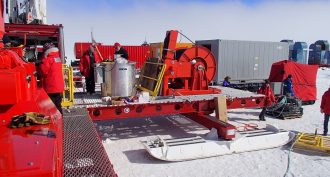 Earth
EarthPiercing a buried polar lake
Researchers in Antarctica drilled through a half-mile of ice to reach water that hasn’t had contact with the atmosphere for thousands of years.
-
 Environment
EnvironmentExhaled air: A problem in buildings?
New studies suggest carbon dioxide that accumulates in classrooms could limit how well the brain processes information, lead to more student absences.
-
 Space
SpaceThe first moon walker
Forty-five years ago, an American astronaut climbed down the ladder of his lunar landing module — the Eagle — and became the first human to touch the moon’s surface.
-
 Fossils
FossilsNew Jurassic flier
Amazingly well-preserved fossil depicts a novel flying reptile from the age of dinosaurs.
-
 Animals
AnimalsPython-palooza!
Monster-sized Burmese python bearing record-number of eggs retrieved in the Florida Everglades.
-
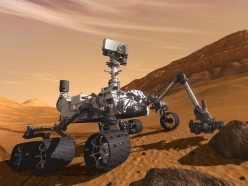 Tech
TechCuriosity lands on Mars!
NASA successfully delivered a $2.5 billion robotic vehicle to Mars, one that will explore for signs that the planet might once have hosted life
-

-
 Environment
Environment‘Nonstick’ chemicals may undercut value of vaccinations
Chemicals used to make fabrics stain resistant and pans stick resistant are showing up everywhere — including in kids. One big downside: New data show they can keep vaccines from working well.
-
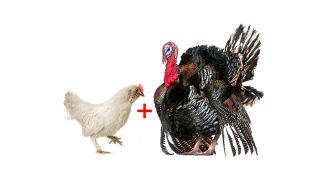 Animals
AnimalsChurk: Not for Thanksgiving
Here’s what happens when livestock breeders cross a chicken and a turkey
-
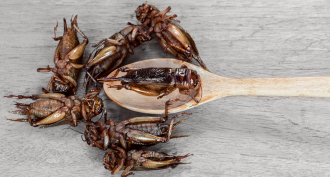 Health & Medicine
Health & MedicineYummy bugs
Eating insects is a common practice in most places, at least outside of the United States and Europe.
-
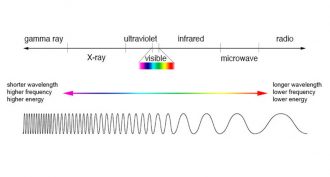 Physics
PhysicsExplainer: Understanding light and electromagnetic radiation
Here's a simple guide to the different types of electromagnetic energy that move as waves.
-
 Chemistry
ChemistryExplainer: What are oxidants and antioxidants?
Certain chemicals, including many in foods, fight chemical reactions that could harm cells in the body and in wildlife.